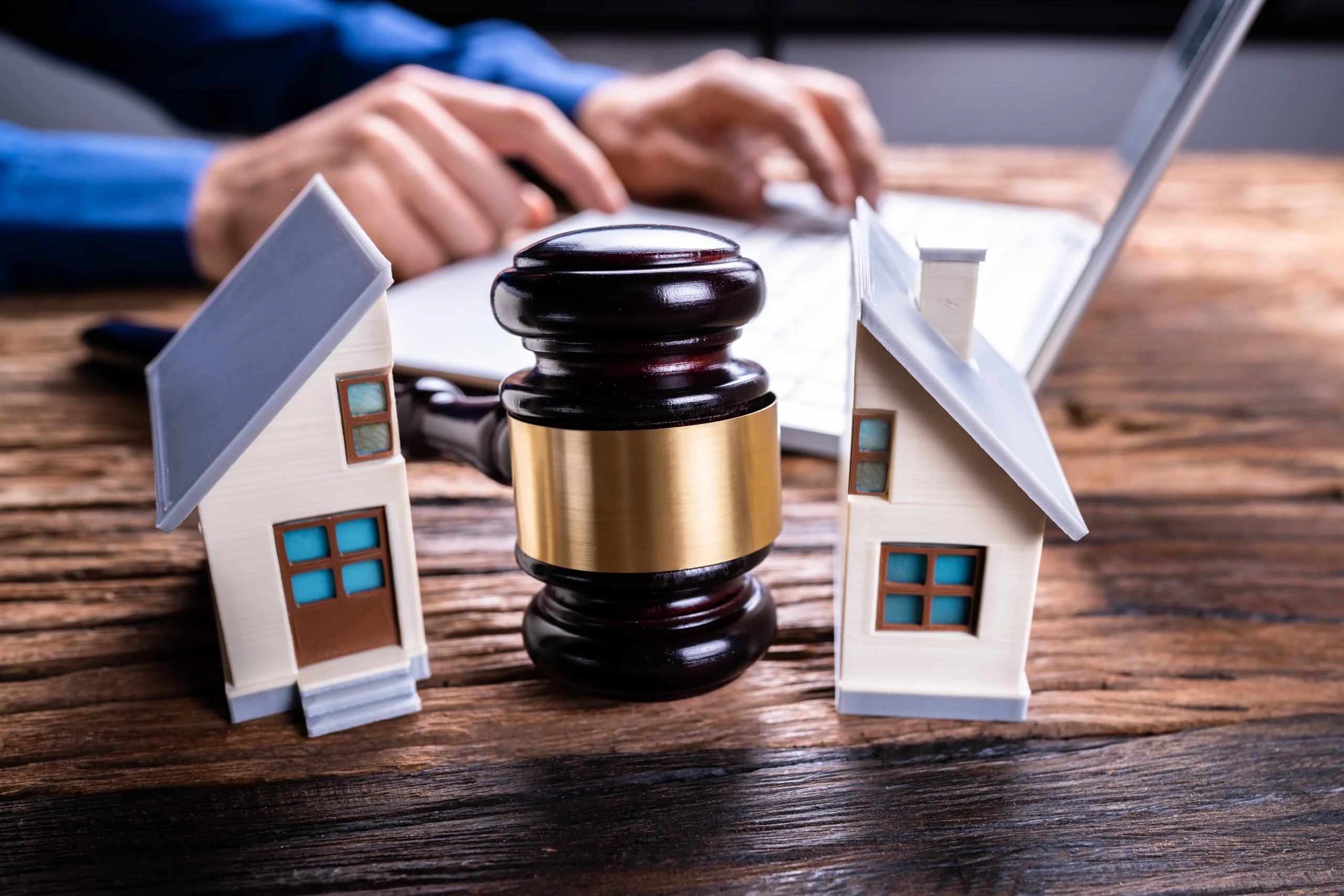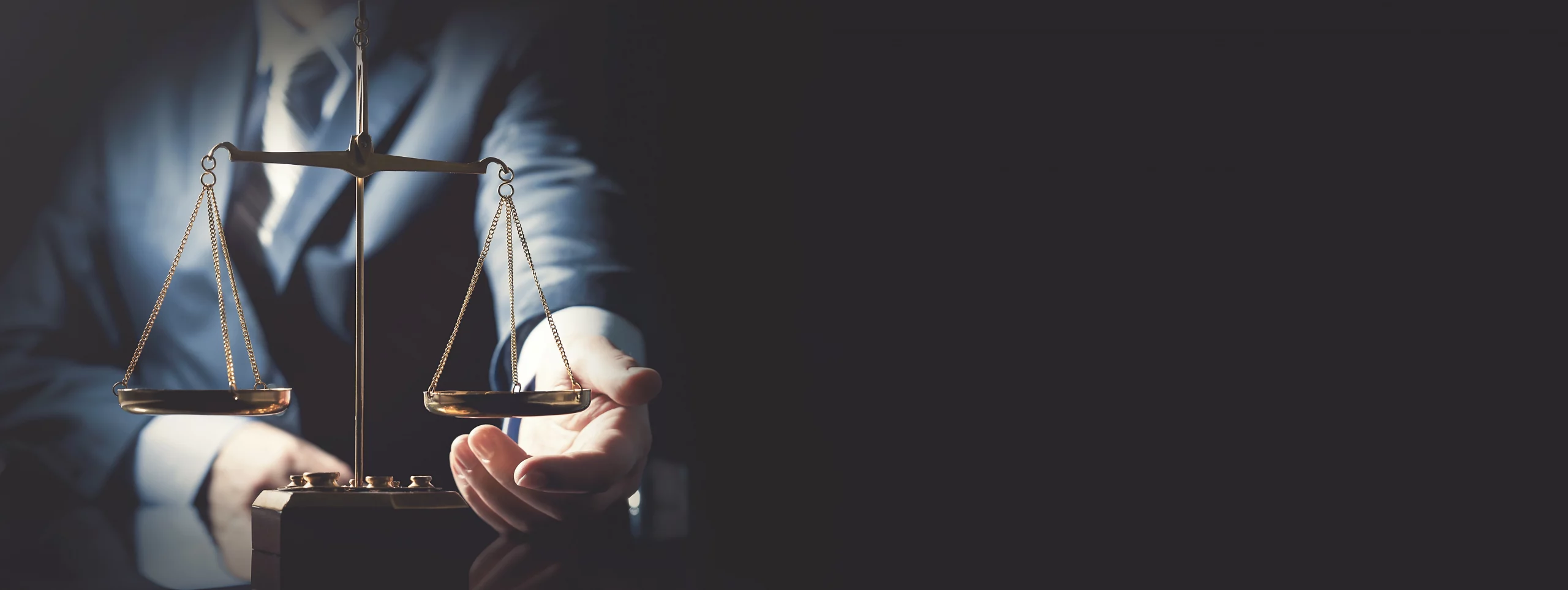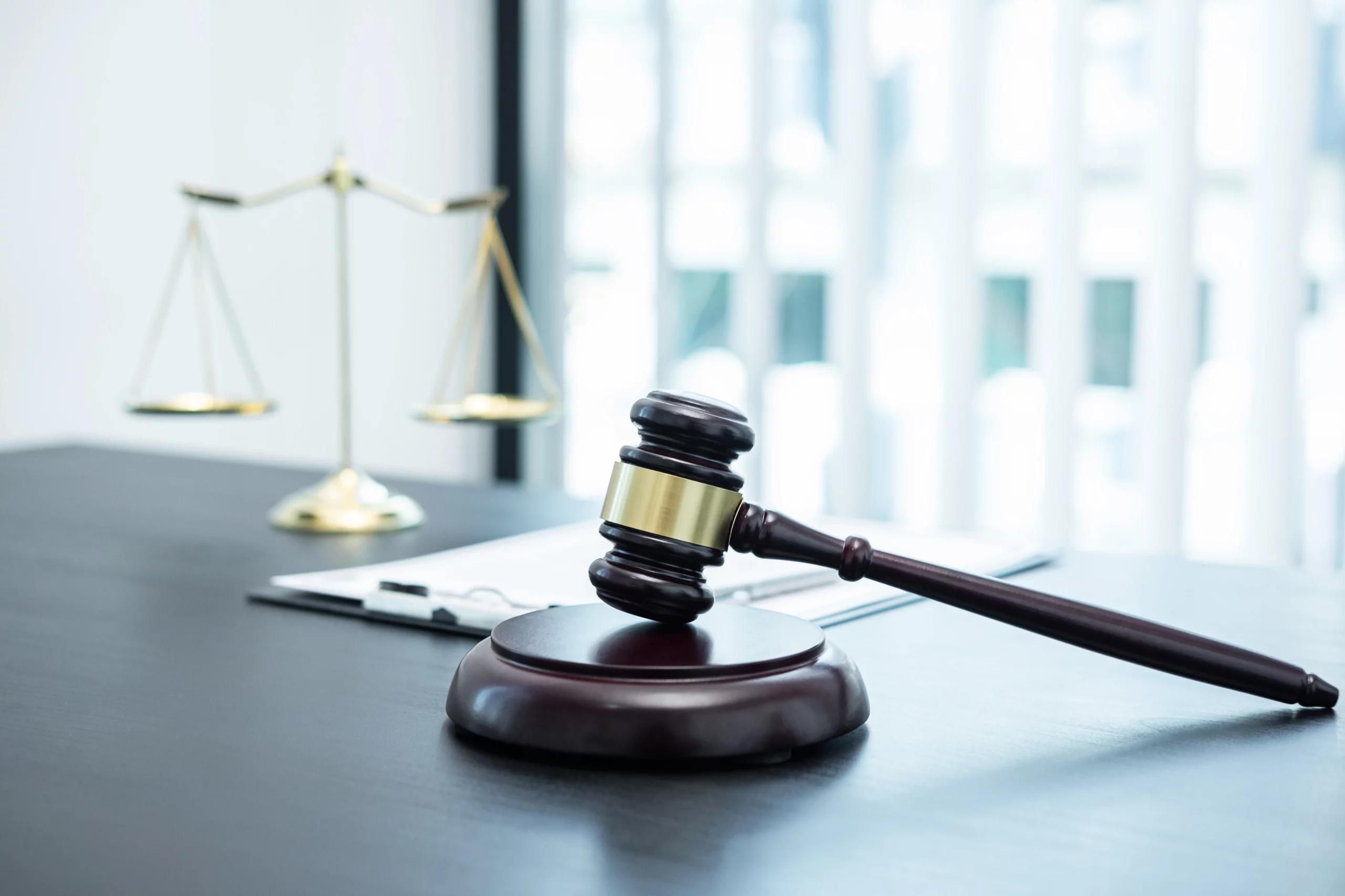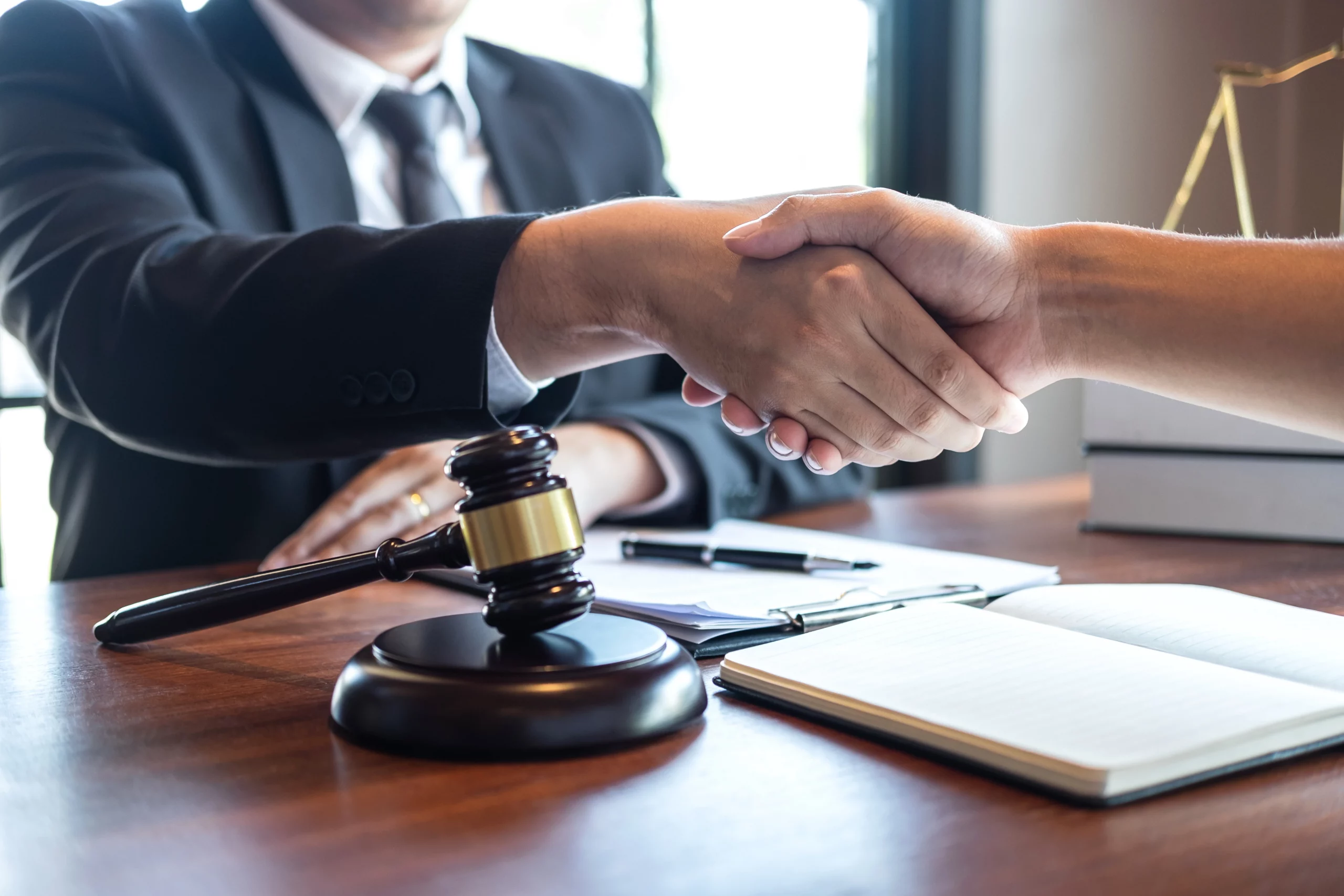Who is Responsible for my Slip & Fall Accident?
The Best Premises Liability Injury Law Firm
Premises Liability > Claims > Who Responsible
In this article, we’ll take a deeper look at the legal idea that usually comes into play when someone is hurt on someone else’s property.
The legal notion of “premises liability” is invoked in personal injury proceedings where the victim was hurt due to a hazard or defect on the property.
Injuries sustained on someone else’s property are usually the result of their carelessness, and premises liability claims are no different. For a premises liability claim to be successful, the injured party must demonstrate that the property owner was negligent in their management of the premises. Negligence refers to a lack of appropriate care for a property owner.
If you were hurt on someone’s property, don’t automatically assume that the owner was careless. Even if the property was in a potentially hazardous condition, that does not prove the owner was careless.
To win a premises liability case, you must prove that the property owner either actually or constructively knew that the premises were unsafe and did nothing to correct the problem. (Explore the topics of Accident Fault and Negligence.)
Let’s analyze such situations in greater detail.
Injury Claims
Free Consultation
NO FEE UNLESS WE WIN
ON THE PROPERTY OF ANOTHER, I SUFFERED INJURY. TO WHAT EXTENT DO I HAVE CHOICES?
The possibility of getting wounded when on someone else’s property is always present. This can happen in your buddy’s place, at a restaurant, or even on vacation. An injury is the last thing you want to deal with at what should be a fun moment.
Sometimes, if precautions had been taken, you wouldn’t have to cope with unnecessary injuries and the aftermath of an accident. When injuries result from an accident that could have been avoided, victims should be allowed to seek compensation for their losses.
PREMISES LIABILITY IS WHAT?
As the name implies, “Premises Liability” refers to the legal responsibility one may be held accountable for in the event of a bodily injury sustained on the property of another. In their broadest sense, properties can refer to either public or private areas.
When someone is hurt on someone else’s property, the injured party can sue the property’s owner(s) for damages. The injured party will typically assert that they were hurt because of some sort of flaw or hazard on the property.
PREFERENCE FOR CARE
The law requires owners to ensure the safety of anyone legally on their land. Depending on the type of visitor, the host’s legal responsibility may increase or decrease.
Visitors invited onto a property for a specific reason are known as invitees. Guests may be invited to the premises for either public or commercial uses, as in the case of a park (such as whenever a customer comes into a store to shop).
Owners must remedy or notify invitees of reasonably foreseeable hazards. This is generally regarded as the highest duty of care1 owed by a property owner to everyone legally on the premises.
Licensees are “social guests” who enter a property with the owner’s permission. They are not considered guests but are permitted entry onto the premises under the law. This “intermediate” level of care lies somewhere between the strict obligation owed to invitees and the less stringent duty owed to trespassers (discussed below).
In most cases, a property owner will be held accountable for an injured licensee if the owner fails to protect the licensee from a known and unjustifiable risk of harm that the licensee was not reasonably expected to know about.
People who break into someone else’s property without consent are called trespassers. Trespassers have a relatively weak duty of care from property owners. The presence of extremely dangerous situations, such as traps, is something no property owner should tolerate.
First, it needs to be determined what category of a visitor the hurt person falls under. The owner’s duty of care as a result of this change. When it comes to the safety of their tenants, property owners should be aware of any obvious hazards.
The property owner should also take precautions to prevent injuries that could result from the existing hazards. The host is responsible for alerting guests to any potentially hazardous situations.
REPAIRABLE LOSS
If someone is hurt on your property, you might be able to sue the owner for compensation. The owner’s relationship with the victim will determine the full scope of damages. If the property owner has breached his or her obligation to the victim, the victim will be entitled to recover damages. For example, the following may fall under the category of damages:
Cost of Medical Care
Ache and agony
Amounts of Money Lost
Assault and resulting death
Damages as Punishment
The injured party must prove that the property owner owed him or her a duty of care, that the owner breached that duty, that the breach caused the victim’s injuries, and that the victim suffered damages. Here, the victim’s testimony will be crucial. To pursue a claim under a theory of premises liability, victims should seek the counsel of a premises liability lawyer.
CONTACT A PREMISES LIABILITY LAWYER IN COLORADO SPRINGS TODAY TO DISCUSS YOUR INJURY CLAIM.
It is possible to seek compensation from the property owner if you sustain an injury on their premises. The legal process might be difficult to understand without the assistance of competent attorneys. Warrior Personal Injury Lawyers in Colorado Springs have the know-how to maximize your compensation for losses. Call us today at 727-222-6922 for a free consultation.
EXAMPLES OF CASE STUDIES IN PREMISES LIABILITY
Several tort actions, such as those involving injuries sustained from tripping or falling on an unsafe surface, fall under the umbrella term of “premises responsibility.”
Mishaps are due to snow and ice, substandard building maintenance, unsafe building conditions
elevator and escalator mishaps that result in injuries or assaults due to lax building security.
Accidents involving dogs and swimming pool
disasters include fires, water leaks, flooding, and poisonous gases or poisons at amusement parks.
You can see that the types of facts included in premises liability lawsuits are quite diverse. Cases involving injuries sustained due to dogs also fall under the purview of premises liability since they include an unreasonably dangerous condition on the property in question (the presence of a potentially dangerous dog).
THE RESPONSIBILITY OF THE PROPERTY OWNER
A landowner’s duty to anyone who enters their property must be reasonably upheld in most states. However, in others, an archaic law may limit a landowner’s duties depending on the visitor’s status.
In those jurisdictions, there are three types of visitors to a property: invitees, licensees, and trespassers.
Those who are invited onto private property by the owner do so with either their knowledge or express or implied consent. Friends, family, and neighbors are typical guests. In the past, a landowner’s obligation to an invitee included making sure the land was reasonably safe for the invitee to use.
A licensee is a person who enters the property with the express or implied authorization of the landowner for that person’s purposes. People like salespeople are common examples of licensees. To the extent that a landowner knows of and can reasonably foresee that a licensee will not be able to identify a hazardous situation on the property, the landowner’s duty to the licensee is limited to providing notice of the condition.
Whoever is on the premises without permission is a trespasser. Unless the trespasser was a minor, landowners traditionally had no obligation. The landlord was obliged to reasonably protect children from any man-made hazards on the property in that situation (i.e., swimming pools).
Suppose you have questions regarding a prospective premises liability issue. In that case, you should consult an experienced local lawyer because these rules may get very technical and vary from state to state.
TYPES OF CLAIMS INVOLVING PREMISES LIABILITY
What follows is a discussion of several types of premises liability lawsuits.
Slip and Fall. These instances are the easiest to handle when it comes to premises liability. They result from falls on another person’s property. The following are some of the most frequent causes of falls due to slipping or tripping:
- problems with the stairs
- a buildup of snow or ice
- damp carpets
- slick with grease
- covertly placed power strips
Thresholds with rugs or carpets that aren’t properly secured, as well as floors, walkways, steps, and staircases that are loose or broken.
Inadequate Building Security. Security in the building is inadequate. The majority of these incidents occur in workplaces or residential complexes. There is a responsibility on the part of the building owners to take reasonable measures to ensure that their properties are secure. This is why most large apartment complexes and office buildings employ doormen or security guards on the ground floor and why residents are expected to keep the doors to their units closed at all times. An injured or deceased occupant may have a premises liability case against the building owner if it can be demonstrated that the owner did not take reasonable precautions to secure the building from unauthorized entry.
Swimming Pool Accidents It’s common for unattended or insecure swimming pools to cause tragedy for youngsters. For this reason, most local regulations and state legislation mandate that a fence enclose swimming pools, typically with a lockable gate. A premises liability claim could be filed against a person whose pool was left unattended and unsecured.
Have you been hurt due to another person’s carelessness while on their property? Have you been hurt on someone else’s property, although the owner might have averted your accident by taking necessary safety measures? Our injury attorneys at Warrior Law fight for the rights of those who have been wounded.
If you need legal assistance, please call our offices at 719-300-1100 or send us a message through the contact form on this page. Come talk to me about your case so I can help you get the money you deserve for your injuries.
The law requires owners of homes and businesses to take reasonable precautions to protect their tenants and customers. The owner may be held liable if an accident or injury occurs on the property, and this responsibility is not upheld.
If someone gets hurt on your property and you can prove it was because of the owner’s carelessness, you can sue them for compensation under premises liability statutes. In addition, a personal injury attorney can explain your legal options if you or a loved one have been injured while on another person’s property.
LIABILITY CLAIMS AGAINST PROPERTY OWNERS
Under premises liability regulations, property owners can be held financially responsible for injuries sustained by visitors who slip, trip, or fall due to hazards on the site.
Accidents, including trees falling on people, trampolines causing injuries, broken restaurant chairs, open ditches, collapsing balconies, faulty stair rails, hazardous electrical outlets, and slick floors, are common examples of premises liability claims. Cases involving carelessness on the property owner’s part typically include premises liability.
CAUSED BY SLIPS AND FALLS
The workplace, hotels, parking lots, garages, restaurants, grocery stores, and shopping malls are all potential locations for a slip-and-fall disaster. When ice, rain, or liquids are present, property owners must take reasonable precautions to ensure the safety of their guests and visitors.
Safety measures are in place to protect residents from falls that might result in serious or fatal injuries such as hip fractures, shattered bones, traumatic brain injuries, lacerations, or spinal cord injuries if residents are not properly supervised.
INADEQUATE PROTECTION
Property owners and managers may be held legally responsible for injuries sustained by third parties under premises liability legislation. A victim of an attack, physical assault, or robbery who believes the property owner was negligent in providing adequate security may launch a civil case against the owner.
ANIMAL BITE AND ATTACK INCIDENTS
Victims of dog attacks or animal attacks can file a lawsuit against the dog’s owner or the owner of the land where the attack occurred. If the landlord knew that the tenant had a dog that had attacked people in the past but did nothing to stop the attacks, the landlord could be held legally responsible.
THE IMPACT OF CONTACT WITH TOXIC MATERIALS
Toxic substances such as chemical solvents, pesticides (such as Roundup non-Hodgkins lymphoma lawsuits or Paraquat parkins0n’s disease claims), asbestos fibers, mold, and others must be kept out of the way of tenants, employees, visitors, and invitees to comply with premises liability rules.
DANGER OF FIRE AND SHOCK
If the building’s owners were careless in implementing safety features, any victim of an electrical shock, explosion, blast, hotel fire, or apartment fire could pursue a civil case.
Cases involving premises liability necessitate a thorough examination of the circumstances surrounding the incident in question to pinpoint whether or not faulty wiring, insufficient sprinkler systems, inadequate fire escapes, or some other negligent condition was to blame for the injuries sustained.
If a fire or electrical shock causes damage, injury, or death, the owner of the business or landlord of a residence may be held legally responsible under premises liability regulations.
INJURIES ON THE JOB
Workers, contractors, and suppliers hurt on the job can sue the property owner for damages if they can prove negligence.
INJURIES SUSTAINED AT THE PLAYGROUND OR SCHOOL.
Negligent monitoring is a common cause of injuries students and faculty members sustain on school grounds and playgrounds. Sexual student abuse by a staff member, coach, counselor, visitor, or parent on school grounds could also be covered by premises liability statutes.
SECONDARY CLAIMS FOR INJURIES SUSTAINED ON THE PREMISES OF NEGLIGENCE
Lawyers focusing on premises liability matters often conduct in-depth investigations into the accidents to discover whether any additional claims can be made against other parties. A secondary claim often centers on a manufacturer’s flaw in the product or a property owner’s inability to properly manage the property.
- Secondary claims in personal injury cases typically consist of:
- Merchandise was lost because of a manufacturing flaw in the brackets utilized by the shelving manufacturer.
- A chair collapsed at a restaurant due to a design or manufacturing flaw.
- The victim sustained injuries when furniture with a design flaw toppled over.
- A flaw in the trampoline’s design or construction.
- A tree fell on a building because a landscaping company neglected to remove dead limbs or trees.
- A contractor or architect conceived of and implemented a potentially hazardous balcony design.
- Injuries were sustained because a property manager or owner did not close off or block off an open ditch.
- A construction site worker or visitor was injured because a safety inspector, whose job was keeping everyone safe, missed a potential threat.
HOW AN INJURED PARTY IS CLASSIFIED DECIDES WHETHER OR NOT THEY ARE ENTITLED TO COMPENSATION.
Property owners and managers have a legal obligation to ensure the safety of their patrons under civil tort law. However, not everyone is eligible to seek compensation through premises responsibility legislation.
Following the doctrine of premises liability, the following people may be eligible to submit a claim for damages:
Someone invited to a party (licensee)
Visitors invited on a business trip (invitees)
Construction workers (employees)
Those that call the location home (tenants)
Quite young trespassers
Injured trespassers of legal age and aware of local trespassing regulations have no legal standing to sue the property owner in civil court for damages under premises responsibility statutes. Furthermore, the duty of care owed by the property owner or manager to trespassers on the property differs greatly depending on whether the trespasser was an adult kid.
LEGITIMATE PROOF OF PREMISES LIABILITY NEGLIGENCE
The legal notion of negligence forms the basis of premises liability proceedings by holding negligent parties liable in civil lawsuits for the harm they unintentionally caused to third parties.
Under premises liability, the plaintiff has the burden of proving that the property owner knew or should have reasonably known about a serious condition on their property and did nothing to remove it (injured party).
The injured party (plaintiff) must prove the four components indicating how the liable party (defendant) acted negligently to win a premises liability lawsuit. The four components are as follows:
Obligation to exercise reasonable care
To recover damages from the defendant, the plaintiff must prove that the defendant owed them a duty of care under the relevant circumstances.
Dereliction of duty
The injured party must show that the defendant was negligent in neglecting to act or improperly acting to remedy the dangerous or defective goods or situation.
Causation
An injured party must prove causation to recover damages from a negligent defendant.
Damages
The burden of proof lies on the plaintiff to show that they suffered some kind of damage due to the defendant’s conduct or inaction.
Under the legal negligence doctrine, an injured party is usually entitled to recover damages if they can prove that the defendant was negligent in causing their injuries. The injured party can expect monetary compensation from the court to pay their medical expenditures, hospitalization costs, lost wages, future lost earnings, emotional distress, pain, suffering, and mental anguish in certain circumstances.
When a loved one is killed on someone else’s property, the surviving family members can file a wrongful death complaint and seek compensation for funeral and burial expenses, lost family support, loss of consortium, and loss of companionship if they can prove all four factors indicated above.
YOU SHOULD CONSULT WITH A PERSONAL INJURY ATTORNEY IF YOU’VE BEEN HURT ON SOMEONE ELSE’S PROPERTY AND WANT TO FILE A CLAIM FOR DAMAGES.
Have you been hurt due to somebody else’s carelessness, like a fall or chemical exposure? Have you suffered a tragic loss due to a wrongful death that could have been avoided if the property owner had dealt with a hazardous condition?
When you choose an injury attorney from Warrior Law, they will fight for your family’s right to financial compensation. To schedule a free consultation with our injury law office, please call our toll-free number (719-300-1100) or fill out the contact form on this page.
Consult with a lawyer specializing in personal injury law to find out what happened and how to proceed with your case. Our firm only takes on personal injury and wrongful death cases on a contingency fee basis. By signing one of these contracts, you agree to pay for our legal services only if and when we successfully resolve your matter for you.
The attorney-client privilege ensures the secrecy of any case-related communications between you and your seasoned legal counsel.

FREE CASE REVIEW
We are standing by ready, willing, and able to help you. You can schedule a free consultation here on our website, or give us a call and talk to us. Whatever you prefer, we will accomodate you!








